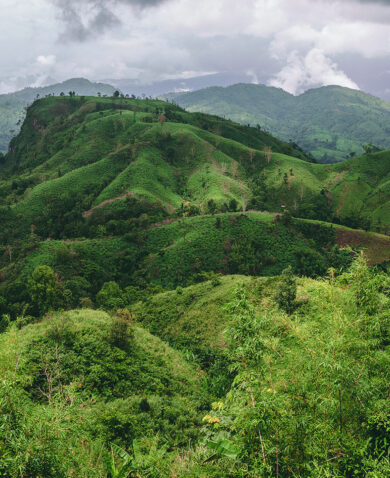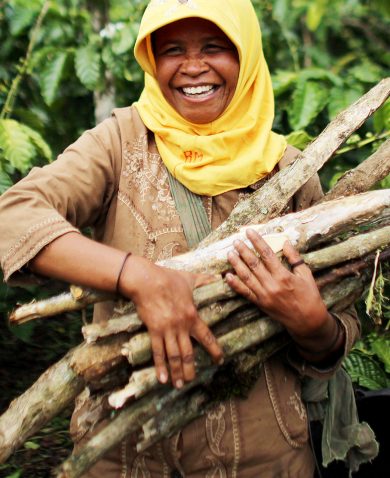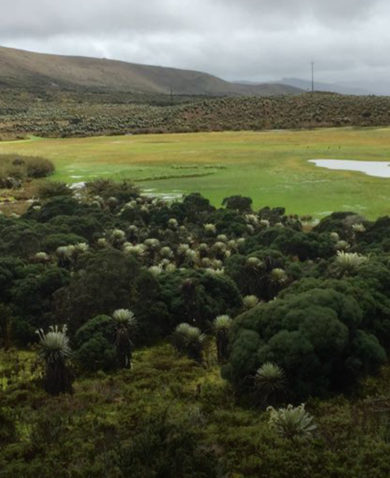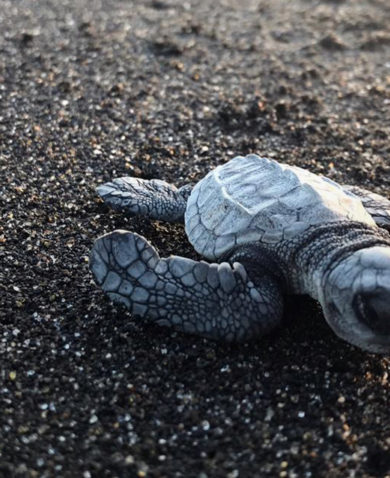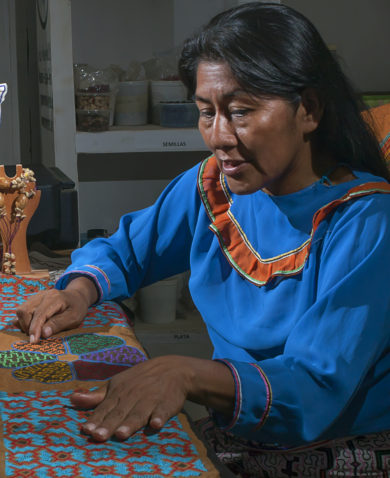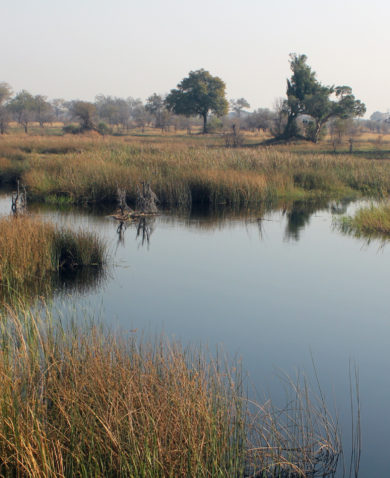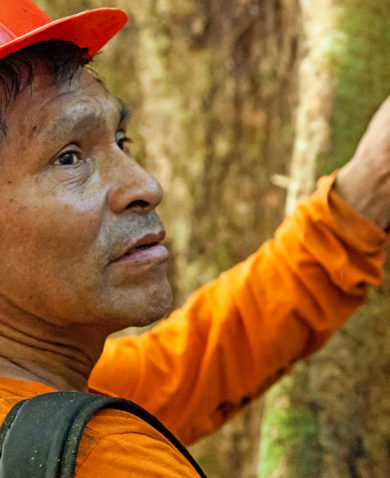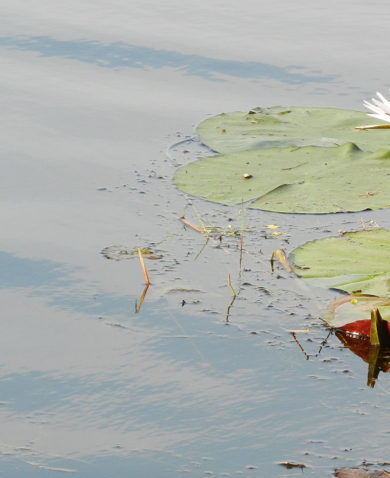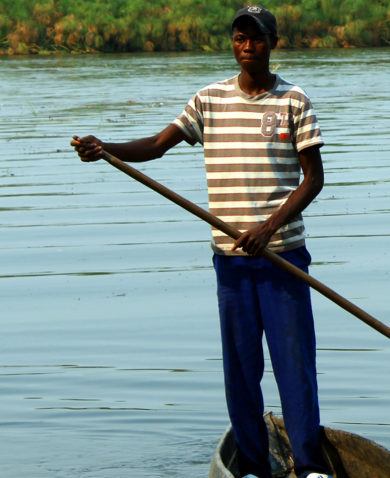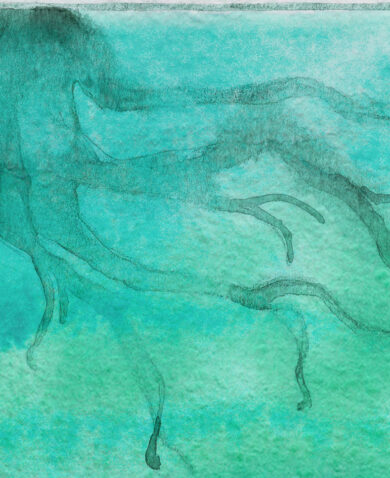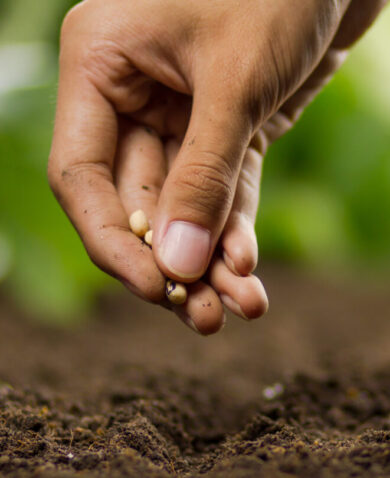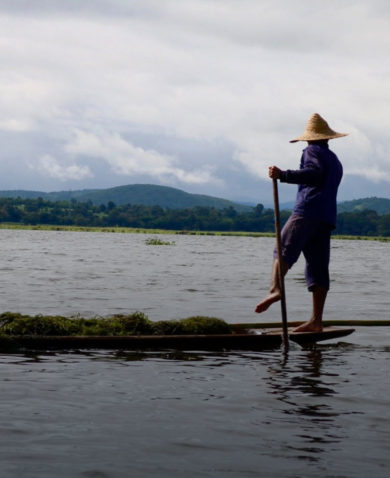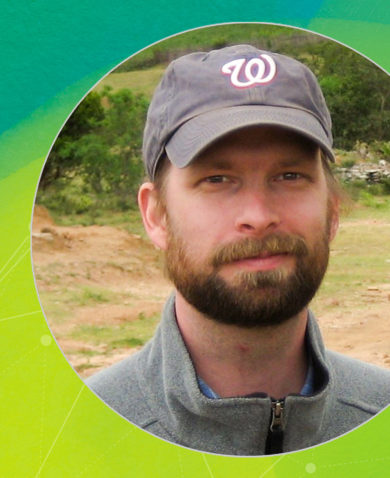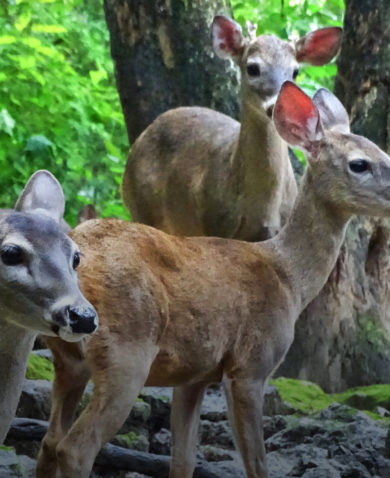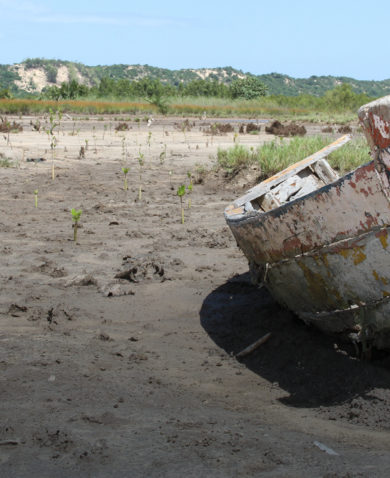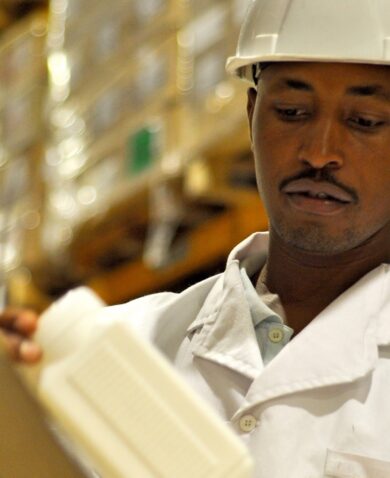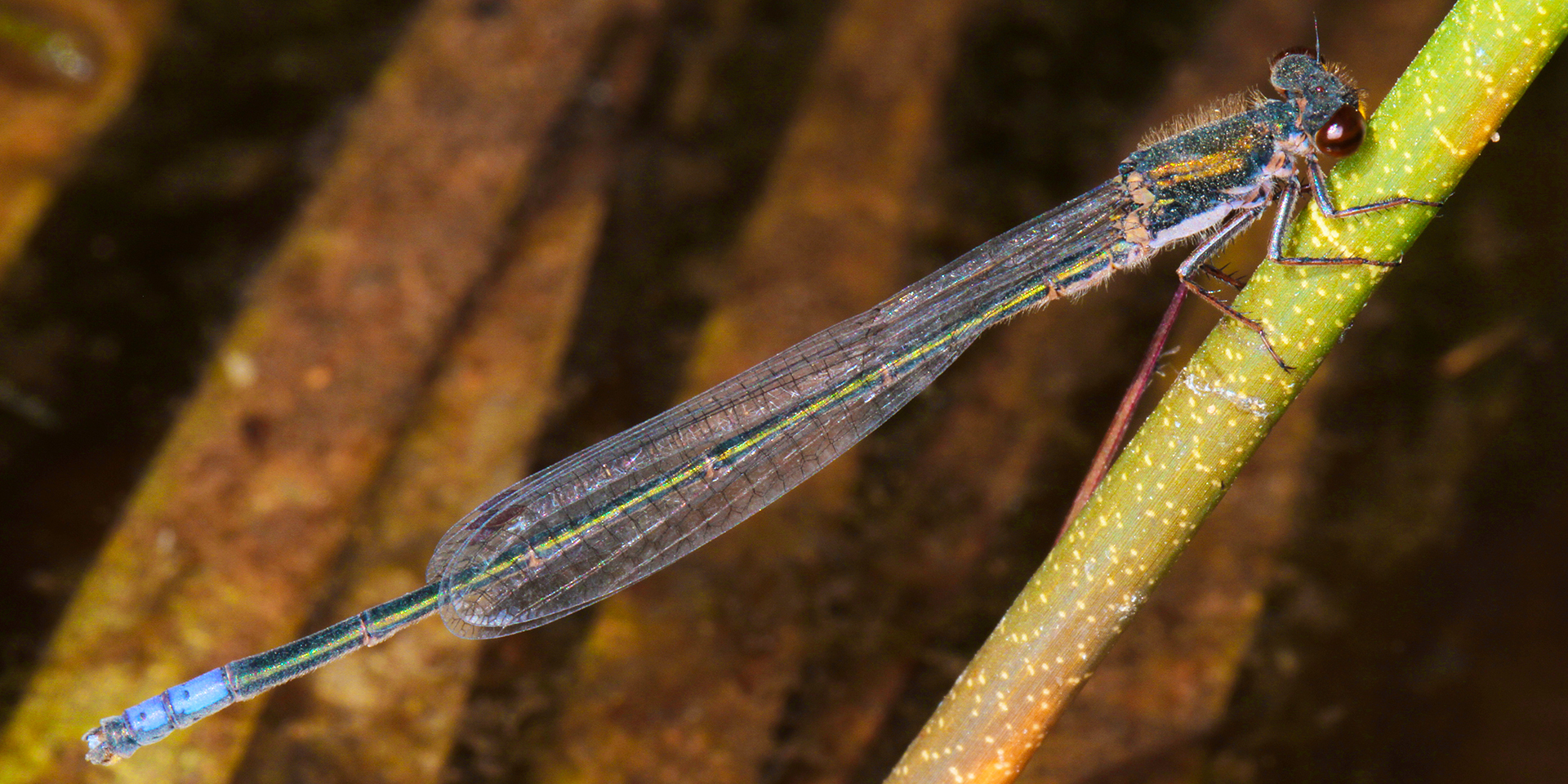
A Damselfly Discovery in Angola .
February 25, 2016Scientists in southern Africa have identified a new species of damselfly while working on an environmental program that protects the biodiversity of the Cubango-Okavango River Basin.
One of the world’s largest inland water systems, the Cubango-Okavango River Basin, is a vast natural resource for Angola, Botswana, and Namibia. It is an environmental treasure trove that not only provides water for more than 1 million people, but also covers more than 6 million biologically abundant hectares.
Threatened by climate change and overharvesting of its natural resources, the Cubango-Okavango River Basin is one of the key areas that the USAID-funded Southern Africa Regional Environmental Program (SAREP), implemented by Chemonics, aims to protect. The program focuses on conserving biodiversity, improving access to water supply and sanitation services, and developing sustainable livelihoods for vulnerable communities in the region. But the program has also achieved something more surprising: Experts recently discovered a new species of damselfly in the basin’s Cubango and Cuito river systems in eastern Angola.
The journey behind this finding involved expeditions to the river basin, intensive environmental assessments, and years of research to confirm the discovery. Originally found in 2012, the species was only confirmed in early 2016. First, in collaboration with the Angolan Ministry of Environment and an expert team of species specialists, the program’s biodiversity experts led a trip to the Angolan headwaters of the river basin.
There, they conducted a variety of activities, including species collections and habitat profiles. These pieces then came together to inform an aquatic biodiversity survey. With the results of the survey, the team was able to develop a wetland species inventory and conduct assessments of how human development affects biodiversity and water quality. It was in the river’s upper catchment, where rainwater collects, that the species specialists came across the Pseudagrion sarepi damselfly, which was given a name inspired by the SAREP expedition — the Sarep Sprite.
With as many as 85 to 90 percent of the world’s species undescribed and nameless, this discovery is no small feat. And it wasn’t the only discovery during this trek through the Angolan headwaters. The team of experts also unearthed a breadth of biological insights, including five previously unidentified species of fish and five other unidentified species of dragonfly and damselfly.
Dragonflies and damselflies breed in freshwater ecosystems, making the species one of the best biodiversity indicators for water quality. Just as local communities thrive with improved access to clean potable water from the Cubango-Okavango River Basin, species such as the Sarep Sprite depend on clean water for their survival. Accordingly, as more debilitating droughts begin to afflict the region and freshwater resources disappear for local communities, the damselfly species becomes more threatened. Through its efforts to enhance monitoring and protection of the Cubango-Okavango River Basin, SAREP also ensures an intact aquatic habitat for the damselfly.
But it’s not only up to these kinds of programs to protect the region’s biodiversity. River basin communities also have an enormous stake in preservation of their ecosystems, including the most microscopic inhabitants. But many of them lack the information they need to make a difference. Even researchers have limited knowledge of the nature and extent of biodiversity in the Angolan portion of the Cubango-Okavango River Basin.
Aquatic biodiversity, in particular, requires joint monitoring by multiple groups to ensure that every species, from the damselfly to the crocodile, survives environmental shifts that put potable water and freshwater habitats at risk. And improving the ways that local communities manage their water resources, a key activity of the SAREP program, will go a long way.
The Sarep Sprite damselfly is an exciting addition to the Cubango-Okavango River Basin’s kaleidoscopic biodiversity. Discovering a new species in the more than 1,000 kilometers of freshwater that straddle Angola, Botswana, and Namibia is a testimony to the region’s rich ecosystems. Local communities, infrastructural partners, and natural historians alike treasure what is biologically known of the Cubango-Okavango River Basin, but it is what remains unknown that thrills the SAREP program’s team and reaffirms their commitment to environmental sustainability and discovery.








